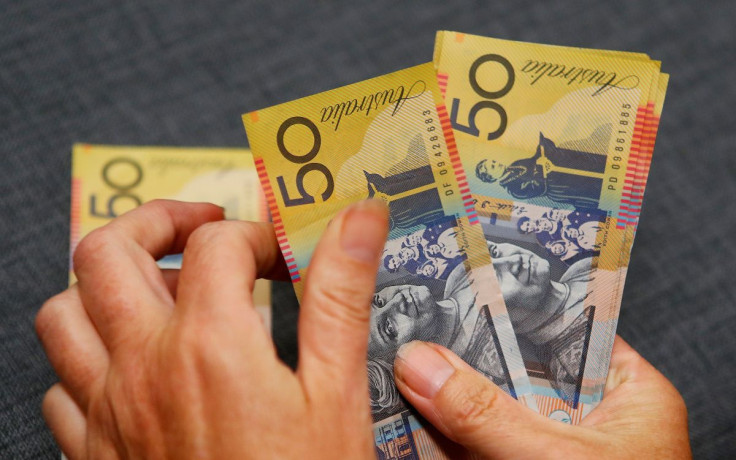Aussie Jumps After RBA Hikes More Than Expected; Yen Sinks To New 20-year Low

The Australian dollar surged after the country's Reserve Bank hiked interest rates more than expected, while the yen dropped to a fresh two-decade low against the greenback as worries about persistent inflation pushed up U.S. bond yields.
The Aussie reversed a small loss to be up 0.56% at $0.72345 after the central bank raised its key rate by a half point - twice what most economists had forecast - and committed to doing "what is necessary" to cool inflation.
Prior to the policy decision, the currency had been pulling back from a six-week peak at $0.72825 reached last Friday.
"There is plenty of sticker shock in the RBA decision, by opting for the least-forecast choice of hike, a long way north of market pricing," said Westpac currency strategist Sean Callow.
"There should be some follow-through for Aussie short-term, making a run at $0.7283 resistance, but we still see downside risks over the course of June given the hawkish (U.S.) Federal Reserve and skittish state of global equity sentiment given doubts over the growth outlook."
Meanwhile, the dollar gained 0.74% to 132.855 yen and at one point hit its strongest since April 2002 at 132.88, as the 10-year Treasury yield rose as high as 3.064% in Tokyo trading for the first time in nearly four weeks.
By contrast, equivalent Japanese yields are pinned near zero by the Bank of Japan's yield curve control policy, with central bank governor Haruhiko Kuroda on Monday reiterating an unwavering commitment to "powerful" monetary stimulus.
Commonwealth Bank of Australia blames not just yield differentials, but also Japan's reliance on energy imports for the yen's weakness, although it doesn't expect much more depreciation from here.
"We consider JPY will continue to benefit from safe haven flows so long as Japan's current account remains in surplus," CBA strategist Carol Kong wrote in a note to clients.
"As such, we do not anticipate a repeat of the rapid USD/JPY appreciation seen in March and April," and instead expect the dollar to consolidate near the top of its recent 126-131 yen range, she said.
Strong U.S. jobs data at the end of last week have fuelled bets that upward price pressures will be around for longer, potentially forcing more aggressive action from the Fed.
Consumer price figures due Friday will provide more clues on the Fed's rate-hiking path, ahead of next week's policy decision, where a half-point increase is widely expected.
The dollar index - which measures the currency against six major peers - ticked up 0.18% to 102.65, extending Monday's 0.26% advance.
The euro slipped 0.15% to $1.0679 ahead of the European Central Bank's rate-setting meeting on Thursday, with traders, who have already priced in several hikes and the end of bond-buying stimulus, wanting more clarity on what comes after.
Sterling dropped 0.3% to $1.2491, undoing Monday's 0.29% gain, when Prime Minister Boris Johnson survived a vote of no confidence but was left weakened.
Elsewhere, bitcoin sank 5.83% to $29,523.03, erasing Monday's 4.89% advance and leaving it languishing below the psychological $30,000 mark as risk sentiment weakened amid declines in most Asian stock markets on Tuesday.
© Copyright Thomson Reuters 2024. All rights reserved.







